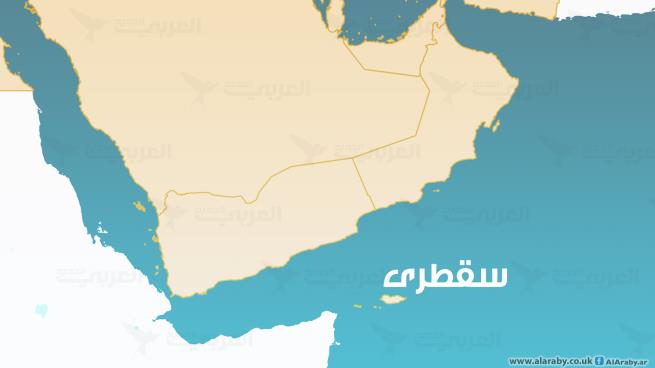The Gulf State Analytics, a Washington-based geopolitical risk advisory organization, warned against bringing the Israelis to Socotra, Yemen, after Abu Dhabi and Tel Aviv’s normalization.
Socotra is defined as “the jewel of the Gulf of Aden” and “the most exotic place on earth.”
It is an otherworldly Yemeni archipelago located 150 miles from the Horn of Africa.
Geopolitical competition
In recent years, there has been an increasing geopolitical competition between the various actors on the international stage that all seek to assert more significant influence over this archipelago, which is strategically located between the Arabian Sea, the Gulf of Aden and the Gulf of Oman.
Socotra avoided the Yemeni civil war and the horrific level of violence seen in other parts of the country.
However, military clashes broke out between the Abu Dhabi-backed Southern Transitional Council and forces loyal to the Yemeni government on April 30, 2020.
After the governor of Socotra and the Southern Transitional Council called on the Saudi government to intervene, matters turned to calm.
This incident came nearly two years after the arrival of tanks and Emirati soldiers to the archipelago, sparking major tensions between Abu Dhabi and President Abd Rabbu Mansour Hadi’s weak government.
Yemeni complaint
In response to “the UAE’s unjustified assault on Yemen’s sovereignty,” the Hadi government raised its complaint to the United Nations.
Despite the UAE’s official withdrawal from Yemen in 2019, it is no secret that the Emiratis retain significant influence on Socotra.
During the year 2020, many mostly Turkish and Qatari media outlets began publishing reports of alleged plans to establish an Emirati-Israeli intelligence base in Socotra.
UAE-Israeli coordination
The Emirati-Israeli coordination in Socotra is a real possibility due to the various regional developments that pushed Abu Dhabi to a greater alliance with Tel Aviv, nearly six months after the Abraham Agreement’s announcement.
Supposing the UAE starts working with Israel in Yemen, in that case, such a development could have a significant impact on the volatile political situation in the country as the multifaceted civil war continues.
The result may be fueling anti-UAE sentiment on the part of Yemenis who are sensitive to Israel and sympathize with the Palestinian struggle.
Yemeni journalist, Abu Bakr al-Faqih, said that “any Emirati-Israeli coordination in Yemen will face an increase in hostility to the UAE among Yemenis, who will feel that Abu Dhabi is undoubtedly Israel’s hand in their country.”
A different position for the allies of the Emirates
Although Yemenis have negative views of Israel, the Southern Transitional Council has a different view of the Jewish state.
Since Abu Dhabi controls the Southern Transitional Council, any measures the UAE takes in Yemen related to Israel will enjoy the STC’s blessing.
One example of this is that the Southern Transitional Council’s leadership praised the normalization agreement shortly after its announcement on August 13.
Thus, despite the absence of a formal diplomatic agreement between Israel and the Southern Transitional Council (at least for the time being) a non-state actor, the STC is the friendliest force for Israel in Yemen.
A divisive agenda
This separatist faction, which controls Socotra, may see the implicit relationship with Israel serving its long-term plan in Aden and elsewhere in southern Yemen.
“The STC believes that their rapprochement with Israel will help establish their independent state,” said Nabil Nouira, an independent analyst on Yemen.
He added, “Therefore, the Southern Transitional Council supports the Emirati-Israeli coordination in Yemen, while the rest of the Yemeni components oppose it.”
Israelis can see the prospect of finding a foothold on Socotra, via the Emirates and the Southern Transitional Council.
As an “unmissable opportunity” to monitor Iran’s activities throughout the Arabian Sea and the wider Indian Ocean, Al-Faqih mentions.
Of course, and within this context, Israel’s entry into Socotra would be in line with Washington’s foreign policy goal.
Emirates conspiracies
The UAE understands how this can enhance its partnership with the United States, especially when many US lawmakers oppose a controversial $23 billion arms deal with the UAE.
Suppose the UAE is empowered in Yemen through its purchase of F-35 fighter jets, Reaper drones, air-to-air missiles, and munitions. In that case, Abu Dhabi could assuage Washington’s concerns by using its power to enable the Israelis to pursue their anti-Iran policies in this Yemeni archipelago overlooking Bab el-Mandeb.
American policymakers will see such an Israeli presence in Socotra facilitated by the UAE as a bulwark against Yemen’s Iranian activities.
So is the Horn of Africa, a volatile region in which Tehran has exercised varying degrees of influence since the 1979 Islamic Revolution.
Massive repercussions
Looking to the future, the possibility of Emiratis and Israelis coordinating their activities in Socotra, assuming that this did not even begin, could have significant geopolitical implications for the Middle East and Asia.
More significant Israeli influence in the Indian Ocean could facilitate the emergence of the “Indian-Emirati-Israeli Triangle” that faces Iran and Pakistan.
For officials in both Tehran and Islamabad, such a development would be disturbing. In 2021, analysts will need to monitor the situation on Socotra and monitor any potential Emirati-Israeli coordination.
In addition to the Red Sea coast – Eritrea, Puntland, etc. – Socotra could be one of the areas in which we see how the Emirati-Israeli partnership affects the geopolitical and security situations in the Middle East, South Asia and Africa.



